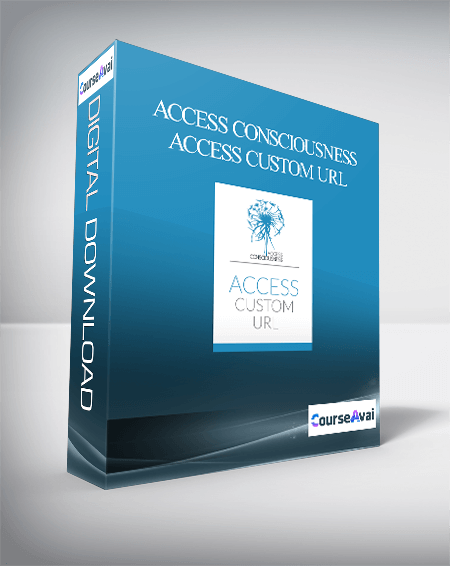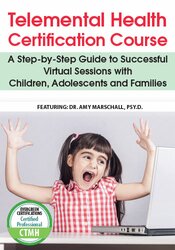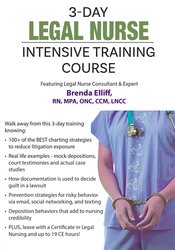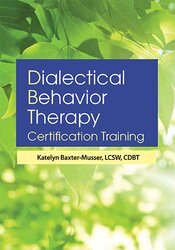Buy Bipolar Disorder-Integrative Treatment Strategies for Lasting Recovery and Stabilization – Catherine Ness Course at GBesy. We actively participate in Groupbuys and are committed to sharing knowledge with a wider audience. Rest assured, the quality of our courses matches that of the original sale page. If you prefer, you can also buy directly from the sale page at the full price (the SALEPAGE link is directly provided in the post).
Salepage link: At HERE. Archive:
$99 $28 – Bipolar Disorder-Integrative Treatment Strategies for Lasting Recovery and Stabilization – Catherine Ness
Do you suspect a client may have Bipolar Disorder but feel overwhelmed by the complexity of their clinical presentation?
Are you exhausted from chasing your client’s mood and trying to get out in front of the next crisis?
Does your client display recurrent mood swings, poor treatment compliance and unpredictable, dangerous impulsivity?
If you’re looking for a clear, comprehensive approach to treating this vulnerable and high risk population, this training is for you!
Watch this recording to discover an integrative approach that goes beyond treating a single mood state and crisis intervention.
You’ll learn innovative, non-medication approaches that combine the most promising researc
hed-based theories into a cohesive treatment guideline to help your clients achieve long-term stabilization.
Packed with tools, tips and handouts, this evidence based, integrative approach will leave your clinical toolbox overflowing with practical interventions, including how to:
- Confidently diagnose Bipolar Disorder and differentiate it from similar disorders
- Identify prodromal symptoms and patterns that precede mood lability
- Motivate your clients to make necessary lifestyle changes for stabilization
- Significantly decrease destructive behavior, including self-harm and suicide
- Create custom, realistic treatment plans that cater to your client’s strengths
Go beyond “supportive therapy” to help your clients regain control of their mood and, ultimately, their lives.
- Differentiate diagnostically between Bipolar Disorder and similar or co-morbid disorders, including substance abuse, personality disorders, ADHD and Schizoaffective Disorder, to better inform treatment planning.
- Identify risk factors and prognostic indicators related to Bipolar Disorder as related to assessment and treatment planning.
- Implement specific clinical interventions to help clients with Bipolar Disorder anticipate, prevent and manage mood lability that interferes with daily functioning.
- Teach clients to recognize and manage social, cognitive and health deficits associated with Bipolar Disorder.
- Create custom treatment plans with tangible, attainable objectives for clients with Bipolar Disorder to meet personal goals toward recovery.
- Develop specific treatment strategies to address comorbid disorders that often accompany Bipolar Disorder, including substance abuse and personality disorders.
Mood on a Continuum: Conceptualizing the Bipolar Spectrum
- Neurobiological underpinnings of Bipolar Disorder
- An acute condition or a chronic, progressive disease?
- Prognosis: Age of onset, importance of early intervention
- Limitations of the research and potential risks
- Understanding the bipolar patient
Clinical Assessment: How to Accurately Diagnose a Frequently Misdiagnosed Disorder
- DSM-5®: Bipolar I, Bipolar II and Cyclothymic Disorders; specifiers
- Manic, mixed and depressive episodes
- Current evidence based assessment tools: SCID, MDQ, GBI, CICI3
- Do most clients present with depression or mania?
- 5 key questions to ask at intake
- How to effectively gather family mental health history
- Tools to detect underreporting of symptoms
- ”Unofficial” signs of mood lability
- How to recognize psychosis
- Differential diagnosis: ADHD, Schizoaffective Disorder, substance abuse and personality disorders
Integrative Treatment Model: Clinical Interventions to Increase Engagement, Stabilize Symptoms and Prevent Relapse
- Psychoeducation
- Tools to promote acceptance of diagnosis; implications of getting better
- Differentiate between moodiness and Bipolar Disorder
- Medications and medication compliance issues
- Family Therapy
- Compliance and communication
- Identification of triggers and prodromal symptoms
- Create an individualized action plan
- Cognitive-Behavioral Therapy (CBT)
- Teach clients how cognition changes with mood
- Identification or triggers and prodromal symptoms
- Create an individualized action plan
- Interpersonal and Social Rhythm Theory (IPSRT)
- Sleep hygiene, routine and circadian rhythms
- Mood and cognition charting
- Grief related to social role changes
- Mania Management
- Safety assessment
- Communication with support network
- Frequency of monitoring
- Identify and Mange Personal Deficits
- How managing deficits decreases relapse
- Strategies to improve social connectedness
- Common cognitive deficits; their impact on stabilization
- Skills for managing cognitive deficits
Clinical Considerations
- Suicide and self-harm: Assessing for risk
- Crisis Intervention: Which symptoms warrant hospitalization?
- Prodromal symptoms: Red flags to listen for in session
- Children and adolescents: DMDD v. Bipolar Disorder
Comprehensive, Step-by-Step Case Conceptualization
- 40 y/o female – depressed presentation, vague history, excessive spending
- 23 y/o male – hyperverbal, angry, depressed, chronic marijuana use
$99 $28 – Bipolar Disorder-Integrative Treatment Strategies for Lasting Recovery and Stabilization – Catherine Ness
Buy the Bipolar Disorder-Integrative Treatment Strategies for Lasting Recovery and Stabilization – Catherine Ness course at the best price at GBesy.. After your purchase, you will get access to the downloads page. You can download all the files associated in your order at here and we will also send a download notification email via your mail.
Unlock your full potential with Bipolar Disorder-Integrative Treatment Strategies for Lasting Recovery and Stabilization – Catherine Ness courses. our courses are designed to help you excel.
Why wait? Take the first step towards greatness by purchasing Bipolar Disorder-Integrative Treatment Strategies for Lasting Recovery and Stabilization – Catherine Ness courses today. We offer a seamless and secure purchasing experience, ensuring your peace of mind. With our trusted payment gateways, Stripe and PayPal, you can confidently complete your transaction knowing that your financial information is protected.
Stripe, known for its robust security measures, provides a safe and reliable payment process. With its encrypted technology, your sensitive data remains confidential throughout the transaction. Rest assured that your purchase is protected.
PayPal, a globally recognized payment platform, offers an additional layer of security. With its buyer protection program, you can feel confident in your purchase. PayPal ensures that your financial details are safeguarded, allowing you to focus on your learning journey.
Is it secure? to Use of?
- Your identity is completely confidential. We do not share your information with anyone. So it is absolutely safe to buy the Bipolar Disorder-Integrative Treatment Strategies for Lasting Recovery and Stabilization – Catherine Ness course.
- 100% Safe Checkout Privateness coverage
- Communication and encryption of sensitive knowledge
- All card numbers are encrypted using AES at relaxation-256 and transmitting card numbers runs in a separate internet hosting atmosphere, and doesn’t share or save any data.
How can this course be delivered?
- After your successful payment this “Bipolar Disorder-Integrative Treatment Strategies for Lasting Recovery and Stabilization – Catherine Ness course”, Most of the products will come to you immediately. But for some products were posted for offer. Please wait for our response, it might take a few hours due to the time zone difference.
- If this happens, please wait. The technical department will process the link shortly after. You will receive notifications directly by e-mail. We appreciate your wait.
What Shipping Methods Are Available?
- You will receive a download link in the invoice or YOUR ACCOUNT.
- The course link always exists. use your account to login and download the Bipolar Disorder-Integrative Treatment Strategies for Lasting Recovery and Stabilization – Catherine Ness course whenever you need.
- You only need to visit a single link, and you can get all the Bipolar Disorder-Integrative Treatment Strategies for Lasting Recovery and Stabilization – Catherine Ness course content at once.
- You can do your learning online. You can be downloaded for better results and can study anywhere on any device. Make sure your system does not sleep during the download.
How Do I Track Order?
- We always notice the status of your order immediately after your payment. After 7 days if there is no download link, the system will automatically complete your money.
- We love to hear from you. Please don’t hesitate to email us with any comments, questions and suggestions.
![GBesy [GB] GBesy [GB]](https://www.gbesy.com/wp-content/uploads/2023/05/gbesy-Logo-full-100.png)


 Purchase this course you will earn
Purchase this course you will earn 




Reviews
There are no reviews yet.